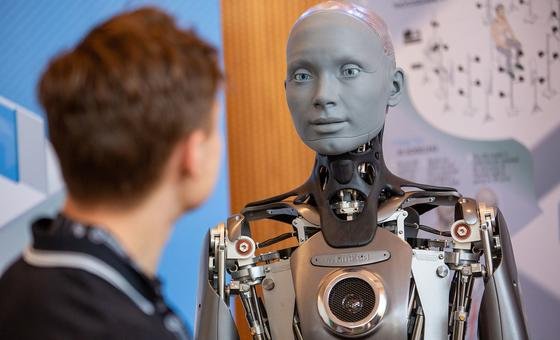The final report of the panel appointed by the UN Secretary-General concluded, “Since the nature of technology is such that its creation or use is not subject to any borders, it is crucial to have a global governance system to regulate it.”
Artificial Intelligence (AI) is changing our world. It is opening up new areas of scientific research and is being used to address everything from optimizing energy grids, improving public health and agriculture, and achieving the 17 Sustainable Development Goals (SDGs).
As such, AI appears to have transformative potential for good. But if unchecked, the benefits of AI will be limited to only a few leading countries, companies and individuals, which could deepen the digital divide and global inequality.
To mitigate these risks, the report presents several recommendations to establish a framework for the international governance of AI.
Growing human rights concerns
The report also raised concerns that AI could be used to violate human rights in a variety of ways.
The raw materials needed to create AI technology are available from different parts of the world, including many important minerals. This brings with it the risk of global war over the control and ownership of these scarce commodities.
Additionally, the use of automated weapons systems capable of making decisions without human intervention raises ethical and legal questions regarding accountability and the protection of civilians during conflict. As AI technology advances, so will the potential for an AI-induced arms race, which could threaten human security.
With the increasing creation and spread of misinformation and confusion that harms citizens, bias and surveillance related to AI is becoming another area of concern.
Gaps begin to appear
The disparity is already visible. In terms of representation, a large part of the world has not been included in international governance discussions for AI.
For example, only seven countries (Canada, France, Germany, Italy, Japan, UK and US) are members of the seven major non-UN AI initiatives. At the same time, 118 countries, mainly from the Global South, were not included in the negotiations.
“Equity needs more voices to have a meaningful say in decisions about how technology affects everyone,” the report said.
The report also states, “It would be unfair for the AI technology sector to concentrate decision-making power in the hands of a few; “We need to recognize that many of the communities most impacted by AI have historically been completely excluded from the AI governance conversation.”
A global inclusive framework
To address these concerns, UN experts have put forward a number of recommendations to regulate the use of AI, including two intergovernmental examples from an international scientific panel for AI governance. and multi-stakeholder policy dialogue and the establishment of a global fund for AI to bridge the digital divide.
The high-level body also emphasized that any deployment of AI in the military sector must be within international humanitarian law and human rights standards. He stressed that this requires countries to establish strong legal frameworks and monitoring mechanisms.
Overall, these recommendations call on UN member states to lay the foundations for a global, inclusive AI governance system based on international cooperation and transparency.

